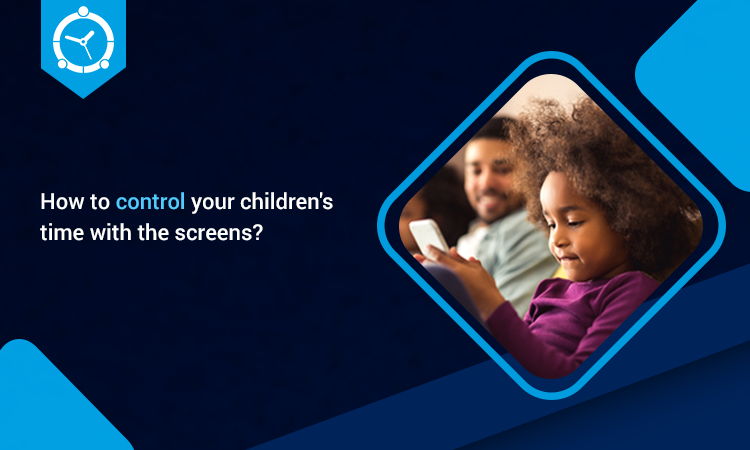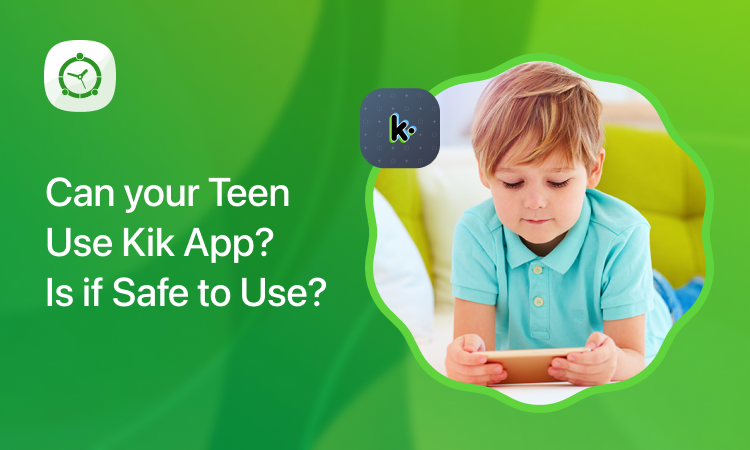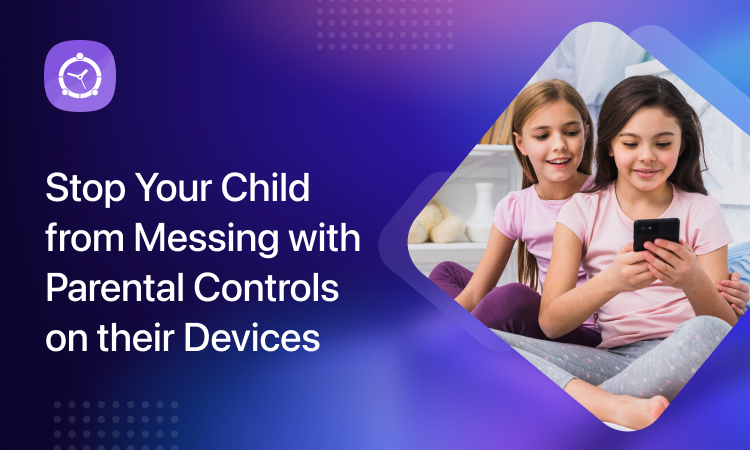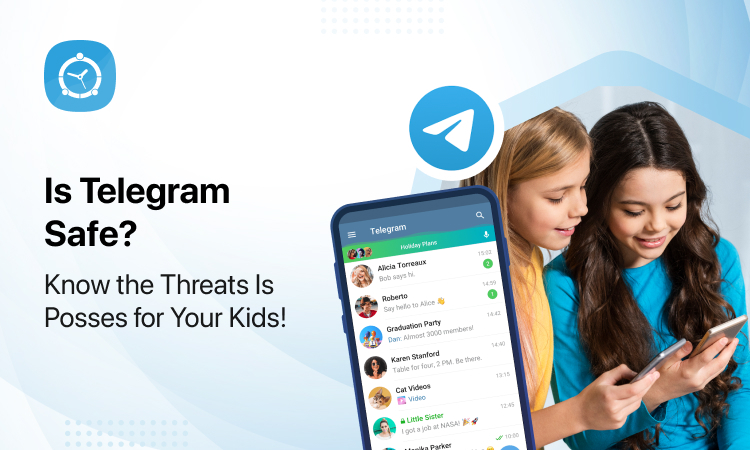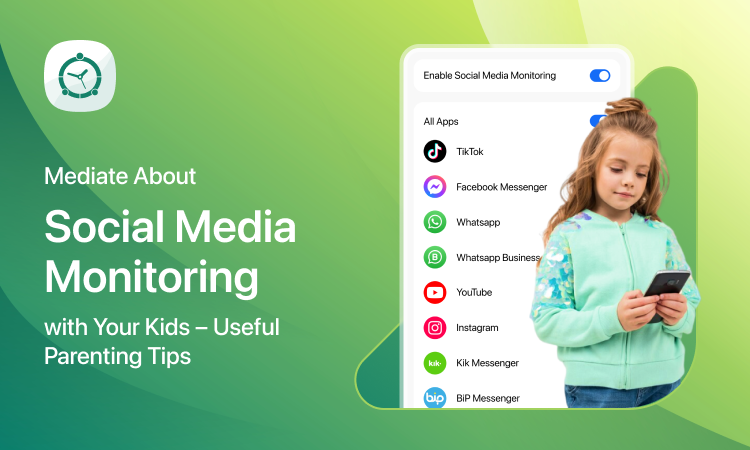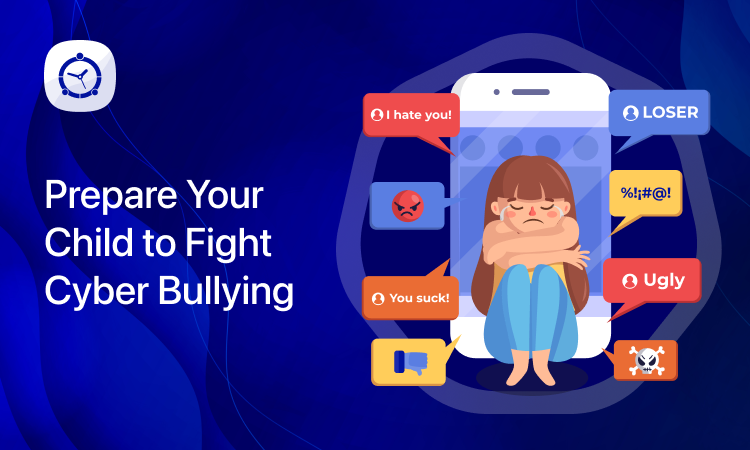Summer vacation. Lots of family time. And lots of water and outdoor activities. For a while, when parents are busy, the little ones calm down in front of a screen, be it a tablet, a smartphone, or a laptop.
But these moments are often extremely long. Kids are too hooked on games, videos, or other online activities for too long.
Half of the parents, worried about the excessive screen use
Nearly half of UK parents show concern over the excessive time that their kids spend online, according to a study by the Internet Matters Foundation. Specifically, 47% of the 2,022 parents surveyed shared their concern about the many hours their children spend in front of a screen.
Internet Matters is a non-profit organization that helps families stay safe on the Internet.
The study, published in late 2018, reveals worrying data. Thus, four out of 10 parents interviewed say that the use of tablets and smartphones is affecting their children’s sleep.
Another concern of parents is that excessive consumption of screens leads their children to have a sedentary lifestyle.
The UK’s public health system, the NHS (National Health Service), has warned that children who spend more time online are at higher risk of developing diabetes and gaining overweight.
On the other hand, Cancer Research UK has warned that children who are too attached to tablets and mobile phones tend to consume more junk food. The reason? By spending so many hours in front of a screen, they are more exposed to unhealthy food advertising.
Following this advertising impact, these children exercise their ability to influence the composition of their parents’ shopping cart.
A more visible problem during the summer
Addiction of the little ones to the screens is a more visible problem during the holiday season. In the summer, this phenomenon demands even more attention from parents because children have many weeks of free time.
That being the case, most parents wonder about the balance they should foster between online time and leisure time devoted to other activities (sports, reading, traditional play, and so on).
Pros and cons
Smartphones, tablets, and Smart TVs are devices and equipment with many benefits for the little ones in the house. Kids can have fun, learn, get informed, and stay in touch with friends. All this, always with adult supervision, of course.
However, side effects also exist.
- Disruption of sleep
Devices can impair sleep and keep children awake when they should be already in bed, asleep.
- Worst school performance
Excessive online time can lead to the child performing less in school and leaving homework aside. In the summer, a few months in which so many schoolchildren are assigned summer notebooks, the abuse of screens can cause these tasks to be relegated until well into September. And then everything is in a hurry.
- Less physical exercise and less social life
The hours in front of a screen detract kids from other traditional activities of childhood and adolescence. So the more hooked kids do a lot less sports and physical activity games with friends. And, of course, they relate less to boys and girls their age. In short, they socialize less.
- Inadequate content and social pressure
Of course, we must not forget the social pressure that online content can exert on important areas for children and adolescents. We are talking about physical appearance, fashion, consumption, lifestyle, emotional relationships, attitudes, and behaviors.
Also, many of the contents may not be appropriate. Likewise, in many digital interactions between minors, there is a risk of cyberbullying.
The online time of the little ones: a difficult object of study
What do scientific research papers say about the effects of online time on minors?
In recent years, many studies have been conducted, but none of them have been conclusive. This is a matter as complex as it is controversial. Therefore, we will have to wait for more complete and solid investigations.
Some of the studies conducted so far focus on the risks and forget about the benefits. Others pay more attention to the physical dimension, leaving aside the more emotional aspects.
Some conclusions of the experts
In the UK, an institution as prestigious as the Royal College of Pediatrics and Child Health (RCPCH) has come to some conclusions. And it has done so through a guide. This is the guide The health impacts of screen time: a guide for clinicians and parents. The PDF is available on the Internet.
In this paper, the RCPCH says that research is very difficult to carry out in this area. The reason is that the use that children and adolescents make of screens is evolving very rapidly.
On the other hand, the available scientific literature tends to focus on the time children and young people spend watching television.
In any case, this institution has reached two conclusions:
- Obesity indicators
“Children who spend more time online tend to follow a less healthy diet, eat more food, and show more pronounced indicators of obesity.”
- More depressive symptoms
“Children who spend more time online, especially more than two hours a day, tend to have more symptoms of depression. However, some studies have found that a little time in front of the screen is better for mental health than not having any time.
The million-dollar question: How long should the child spend online?
There are no official guides for parents that help to give an answer to this question.
The Royal College of Pediatrics and Child Health ( RCPCH ) says it is unable to offer an advisable amount of time.
Instead of this, proposed that the families arrive at a consensus on these limits based on the needs of each child. Because every child is a different case. And because, in the end, what it’s all about is common sense.
To help with this purpose, the RCPCH has created a set of questions that can help set some rules in the family context.
- Do you control the time your family spends in front of the screens?
- Does the use of screens interfere with the plans you want to make as a family?
- Does using screens interfere with your sleep hours?
- Can you control meals between hours when you’re in front of a screen?
Bits of Advice
The Internet Matters Foundation offers the following tips to parents.
- Give an example
Children emulate what parents do. So, as parents, make sure you’re not glued to a screen every time your kids see you.
- Set a time limit
You have to set some limits, which can be agreed upon. These limits can also help adult family members. To implement these limits, install the FamilyTime screen time limit app, which allows parents to set screen time limits for every child and lock their devices automatically.
- Reach a consensus on free areas for tablets and smartphones
For what purpose do you want your smartphone or tablet in the pool or on the beach? The outdoor scenery characteristic of summer vacations is the perfect excuse to be a little analog. Why not bring a printed magazine, a paper novel, or a card game to your bath bag?
The dining room is a space for everyday use, which you use all year round, where mobile devices should have no room.
If you remove your cell phones from the lunch table, you will gain high-quality family time. To chat, to catch up, to laugh and for many other things
Another idea to consider is to keep smartphones and tablets well away from bedrooms. In this way, you guarantee that the hours to sleep are completely restful.
- Discuss the rules as a family
Get together and reach agreements on the use of screens and online platforms such as Netflix. In this debate, it is good to decide on how to use technology. Another question to solve as a family is about why and what you use screens for.
- Spend quality time online with your kids
Kids get hooked to the screen because of boredom. So, it is good to spend quality time with your kids and make them enjoy every activity you do with them. You can teach them content and tools that allow them to learn new skills or help them explore their hobbies or discover their identity.

